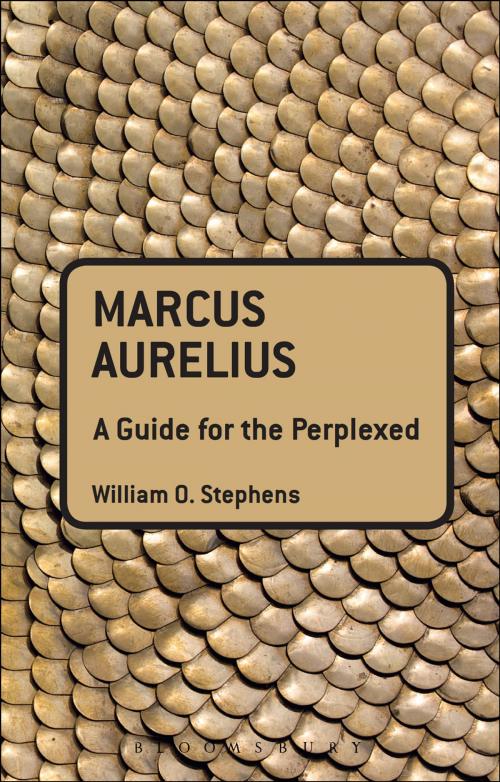Marcus Aurelius: A Guide for the Perplexed
Fiction & Literature, Literary Theory & Criticism, Ancient & Classical, Nonfiction, Religion & Spirituality, Philosophy, Ancient| Author: | William O. Stephens | ISBN: | 9781441101792 |
| Publisher: | Bloomsbury Publishing | Publication: | November 17, 2011 |
| Imprint: | Continuum | Language: | English |
| Author: | William O. Stephens |
| ISBN: | 9781441101792 |
| Publisher: | Bloomsbury Publishing |
| Publication: | November 17, 2011 |
| Imprint: | Continuum |
| Language: | English |
This book is a clear and concise introduction to the Roman Emperor Marcus Aurelius Antoninus. His one major surviving work, often titled 'meditations' but literally translated simply as 'to himself', is a series of short, sometimes enigmatic reflections divided seemingly arbitrarily into twelve books and apparently written only to be read by him. For these reasons Marcus is a particularly difficult thinker to understand. His musings, framed as 'notes to self' or 'memoranda', are the exhortations of an earnest, conscientious Stoic burdened with the onerous responsibilities of ruling an entire, enormous empire.
William O. Stephens lucidly sketches Marcus Aurelius' upbringing, family relations, rise to the throne, military campaigns, and legacy, situating his philosophy amidst his life and times, explicating the factors shaping Marcus' philosophy, and clarifying key themes in the Memoranda. Specifically designed to meet the needs of students seeking a thorough understanding of this key figure and his major work, Marcus Aurelius: A Guide for the Perplexed is the ideal guide for understanding this Stoic author - the only philosopher who was also an emperor.
This book is a clear and concise introduction to the Roman Emperor Marcus Aurelius Antoninus. His one major surviving work, often titled 'meditations' but literally translated simply as 'to himself', is a series of short, sometimes enigmatic reflections divided seemingly arbitrarily into twelve books and apparently written only to be read by him. For these reasons Marcus is a particularly difficult thinker to understand. His musings, framed as 'notes to self' or 'memoranda', are the exhortations of an earnest, conscientious Stoic burdened with the onerous responsibilities of ruling an entire, enormous empire.
William O. Stephens lucidly sketches Marcus Aurelius' upbringing, family relations, rise to the throne, military campaigns, and legacy, situating his philosophy amidst his life and times, explicating the factors shaping Marcus' philosophy, and clarifying key themes in the Memoranda. Specifically designed to meet the needs of students seeking a thorough understanding of this key figure and his major work, Marcus Aurelius: A Guide for the Perplexed is the ideal guide for understanding this Stoic author - the only philosopher who was also an emperor.















